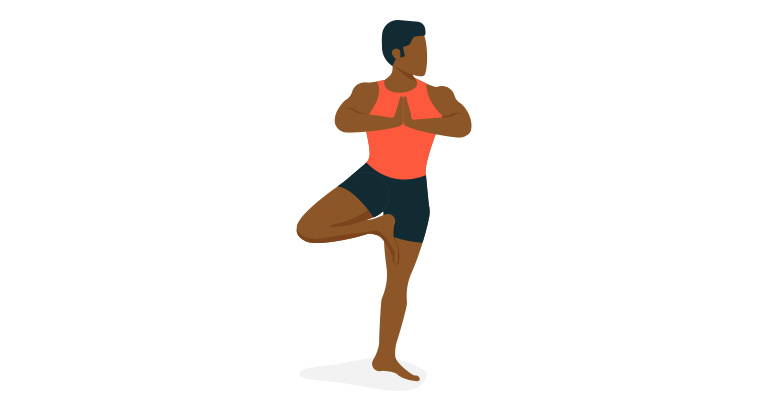
With World Health Day taking place on April 7, we believe there’s no better time than now to prioritise our health. Bahrain This Month’s resident health buff, Edwin D’Souza, shares his easy-to-incorporate lifestyle practices to improve your overall health.
A common misconception that most people have is that it is only medication that can better our health. While guidance from healthcare professionals is essential for our wellbeing, leading a healthy lifestyle goes hand-in-hand with this advice and is paramount when it comes to maintaining good health and living a fulfilling life. Fortunately, there are numerous simple lifestyle practices that can significantly improve your overall well-being.
The fact of the matter is, you don’t have to wait to fall sick to make a change. Let’s explore eight easy-to-incorporate habits and their direct impact on various aspects of your health so you can ‘get well soon’.
 1. Increase Your Step Count for Cardiac Health
1. Increase Your Step Count for Cardiac Health
Walking is a low-impact exercise that can easily be incorporated into your daily routine. By increasing your step count each day, you can significantly improve your cardiovascular health. Studies have shown that regular brisk walking for at least 30 minutes a day can lower the risk of heart-related illnesses by up to 30 percent. According to several reports, walking boosts blood circulation, helps maintain healthy blood pressure levels, strengthens the heart, and reduces the risk of heart disease.
A great way to start is by being aware of your daily step count. There are several apps which can track your steps, or you can invest in a smart watch to do the same along with monitoring your heart rate. If you haven’t been walking in a while, there’s no need to be discouraged. A step count of under 5,000 is generally considered to be a sedentary lifestyle, so work to keep your step count over 5,000 with an overall aim of eventually building it up to 10,000 steps.
2. Increase Water Intake for Improved Hydration
Staying hydrated is vital for overall health and well-being. Increasing your water intake can benefit your body in numerous ways. Water aids digestion, supports nutrient absorption, promotes healthy skin, regulates body temperature and helps remove waste from the body. Aim to drink at least eight to 10 glasses of water per day to maintain optimal hydration. By staying properly hydrated, you can improve organ function, enhance mental clarity and boost energy levels throughout the day. If you are someone who is always on the go, carry your water bottle along to stay hydrated.
 3. Limit Highly Processed Foods
3. Limit Highly Processed Foods
These days, we often find ourselves (unknowingly) consuming food that contains harmful ingredients. Highly processed foods, such as sugary snacks, fast food and processed meats, are often high in unhealthy fats, added sugars and sodium. These foods can increase the risk of obesity, heart disease and other chronic conditions. It is important to limit the consumption of these items in your weekly diet.
Moving towards nutrient-dense, whole foods like fruits, vegetables, whole grains and lean proteins helps you understand your meals better and keeps you aware of your food intake while providing your body with essential nutrients.
 4. Prioritise Regular Exercise
4. Prioritise Regular Exercise
Engaging in regular physical activity is crucial for maintaining good health. Exercise improves strength, flexibility, cardiovascular fitness and mental well-being. It reduces the risk of chronic diseases, boosts mood and supports weight management. Aim for at least 60 minutes of moderate-intensity exercise per day, such as jogging, cycling or dancing or any sort of sports that you enjoy.
The entire idea of getting a workout done is to enjoy what you’re doing and burn some calories at the same time. So, pick a fun activity with your friends, as by incorporating exercise into your routine you can increase muscle strength, improve bone density and enhance overall physical fitness.
5. Practice Mindful Eating
Mindful eating involves paying attention to the sensory experiences of eating, such as the taste, texture and aroma of food. It helps promote healthy eating habits, prevent overeating and improve digestion. Take your time to savour each bite, listen to your body’s hunger and fullness cues, and choose nutrient-rich foods that nourish your body. By practicing mindful eating, you can develop a healthier relationship with food, appreciate the flavours and make conscious choices that support your overall health.
 6. Get Sufficient Sleep
6. Get Sufficient Sleep
Quality sleep is essential for physical and mental health. Lack of sleep can lead to a range of health issues, including increased stress levels, impaired cognitive function, weakened immunity and weight gain. Aim for seven to nine hours of uninterrupted sleep per night. Create a calming sleep routine, such as avoiding electronic devices before bed, ensuring a comfortable sleeping environment and practicing relaxation techniques. By prioritising sleep, you can enhance memory, improve mood and boost overall well-being.
 7. Manage Stress Levels
7. Manage Stress Levels
Chronic stress can have detrimental effects on your health. Finding healthy ways to manage stress is essential. Chronic stress contributes to conditions such as high blood pressure, weakened immune function and mental health disorders. Practice relaxation techniques, such as deep breathing exercises, meditation or yoga. Engage in activities that bring you joy, such as hobbies, spending time with loved ones or engaging in creative outlets. By managing stress, you can improve emotional well-being, reduce the risk of stress-related ailments and lead a more balanced life.
8. Cultivate Positive Relationships
Building strong, positive relationships is vital for mental and emotional well-being. Surround yourself with supportive friends, family and a strong social network. A major aspect in your relationships is your connection with your work environment. We don’t pay a lot of attention to the impact our work environment has on us in terms of relationships with the people we work with, always stay positive and have open ended discussions with your colleagues to promote a healthy work atmosphere. Positive relationships promote positive emotions, reduce stress levels, increased happiness, improved self-esteem and better overall mental health.
 9. Create a Timetable
9. Create a Timetable
We all have a work timetable and we also had a timetable in our schools, why not one for our own health benefits? Having a timetable for your daily plan and adding a simple hours’ time of workout can change a lot in your day-to-day life. A timetable helps in building structure around your day and helps you not to miss the small details in staying fit, for example; having a reminder to consume water at a certain time or eat a fruit at a certain time can help you build a habit until it is a part of your lifestyle. Taking time out of your day to stay fit is essential.
Instagram poll
Here’s what we asked our followers this month:
What is your average daily step count?




